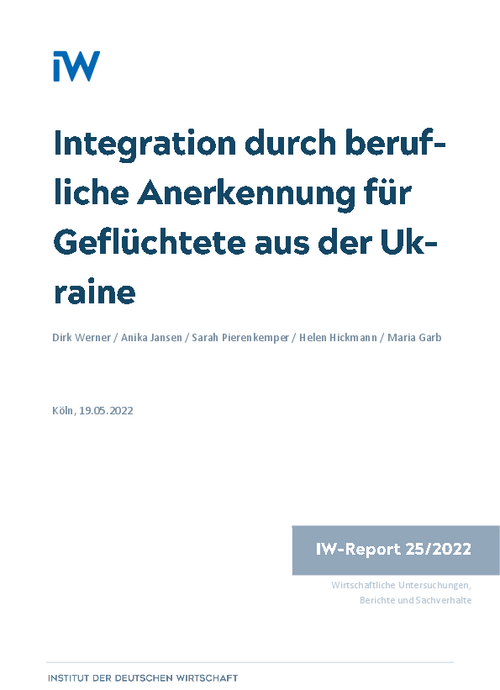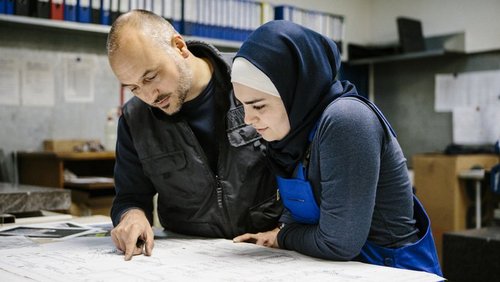Russia's war of aggression against Ukraine has triggered a wave of refugees, in the course of which many Ukrainians have already come to Germany and more are still to come. For the refugees, protection, childcare and family care are priorities.

Integration through professional recognition for refugees from the Ukraine

Russia's war of aggression against Ukraine has triggered a wave of refugees, in the course of which many Ukrainians have already come to Germany and more are still to come. For the refugees, protection, childcare and family care are priorities.
At the same time, there are many calls to integrate the refugees into the labour market as quickly and easily as possible. However, this will only be possible in the short term for those adults who do not have to take care of children or relatives. When it comes to integration into employment, a distinction must therefore be made between a short-term and a medium- to long-term perspective.
In the short term, the chances of participating in the labour market are favourable for Ukrainian refugees due to the so-called “mass influx directive” based on section 24 of the Residence Act, as persons have access to the labour market in Germany in addition to temporary protection of one to three years (BMI, 2022). In the medium to long term, a sustainable integration into qualified employment is of great importance. Refugees can best take advantage of the opportunities on the labour market if they work in a job that corresponds to their qualifications. Formal recognition of existing professional qualifications from Ukraine plays an important role here. Recognition provides transparency about existing knowledge and skills and facilitates entry into qualified employment.
Since the Recognition Act came into force in 2012, it has been possible for all persons to have their foreign vocational qualification recognised in Germany. The prerequisite is that the person has completed a formal and state-recognised initial or continuing education. In the years 2016 to 2020, a total of 6,213 recognition procedures for Ukrainian vocational qualifications were finalised. Many of the recognitions are for professions that have major shortages of skilled workers on the German labour market, such as health care and nursing. In 2020, 48.5 per cent of the recognition decisions for women from Ukraine were for occupations with skilled labour shortage. For Ukrainian men, the figure was as high as 49.0 per cent. A look at the Ukrainian education system shows that although there is often less practical training than in German vocational education, there is still a good chance of recognition.
Ukrainians who have lived in Germany before the outbreak of the war are well integrated into the German labour market. Many work in qualified jobs as specialists or at expert level. Studies available so far show that the level of education of newly arrived Ukrainians is also high. The 360,000 Ukrainian refugees officially registered so far therefore have good prerequisites for gaining a foothold in the German labour market, provided their family situation allows it and they seek employment.
This IW report focuses on the potential for integrating Ukrainian refugees into the German labour market and the importance of the recognition of previously acquired qualifications.

Integration through professional recognition for refugees from the Ukraine

More on the topic

Record immigration not only due to flight from Ukraine
In 2022, more people immigrated to Germany than ever before in the history of the Federal Republic. Around 1.46 million more people moved here than left the country, which is more than a quarter more than the previous record of 1.14 million from 2015.
IW
Immigration from Latin America: Successes and potential for securing skilled workers
Against the background of the baby boomers leaving the labour market, Germany will be increasingly dependent on skilled workers from abroad in the coming years in order to secure growth and prosperity.
IW